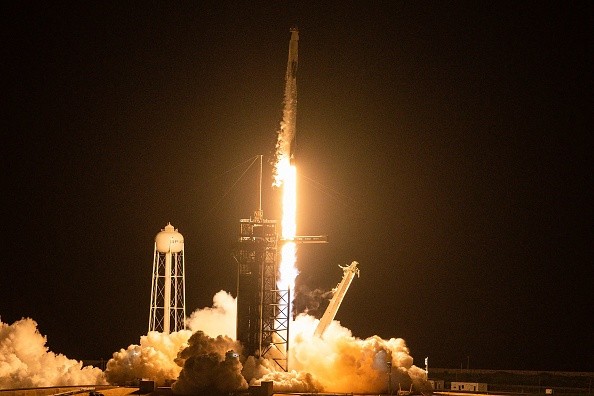
A majority of people think the US should accelerate its space technology capabilities to stay ahead of the new space race between it, China, and India 50 years from now.
A Pew Research Center study released Thursday (July 20) revealed 55% of its respondents expect space tourism to become normal in the next 50 years, thanks to efforts made by companies like SpaceX, Blue Origin, and Virgin Galactic to leave for Earth orbit, even if temporarily.
At the same time, 35% of respondents said they were interested in orbiting the Earth, which was 7% lower than the last time the nonprofit pollster asked the question in 2018.
It was revealed the interest peaked among young adults aged 18 to 29, while those over 65 say they were not interested.
"Support for a US leadership role in space is widely held across groups, including by majorities of Republicans and Democrats alike," Pew researchers Brian Kennedy and Alec Tyson wrote in a summary of the findings.
Pew also found that 65% of respondents believe it would be essential for NASA to remain involved in space exploration compared with 32% saying private companies alone are sufficient in doing so.
Other Findings
Pew's latest survey about space exploration and space tourism also found the following:
44% of adults think the U.S. will probably or definitely fight other nations in space during the next 50 years, with the possibility it would either be Russia, China, or both.
40% think intelligent life will probably or definitely be discovered on another planet by 2073.
A third of adults believe colonies that support long-term life on other planets will spring up over the same period.
In addition, most respondents, particularly Republicans, said monitoring potentially dangerous asteroids should be NASA's priority. Meanwhile, half of the people surveyed named monitoring Earth's climate system as crucial, especially for Democrat respondents.
At the same time, only 12% of respondents said lunar exploration should be a priority for NASA, despite its efforts to improve and launch its next Artemis mission, and 11% say putting people to Mars should be a priority.
More than 10,000 members of Pew's American Trends Panel responded to the study between May 30 and June 4 with a 1.5% margin of error and a 95% confidence level.
"A lot has changed in the last five years," Kennedy said. "We have the increasing involvement of private companies, space tourism seemingly becoming more of a reality, and also more countries involved in space. Countries like India and China."
Related Article: Scientists Baffled by Mysterious Radio Signal That Has Been Turning On, Off for the Past Three Decades
© 2026 HNGN, All rights reserved. Do not reproduce without permission.








